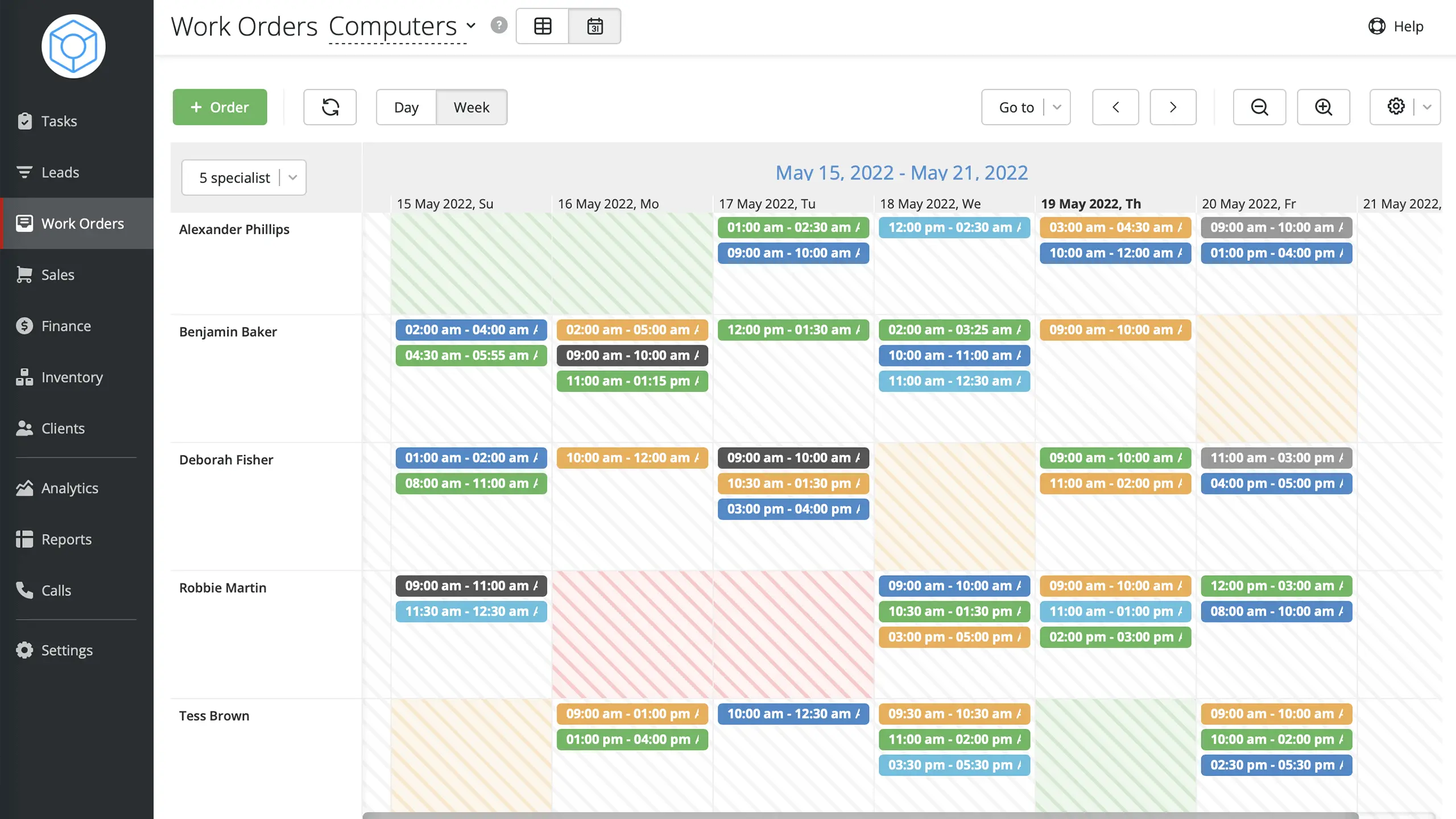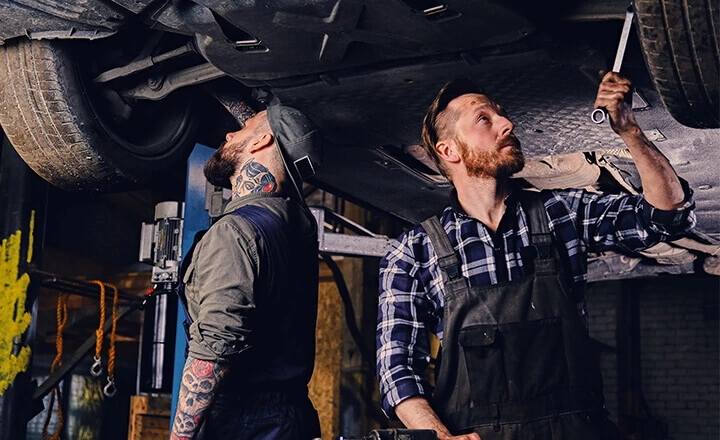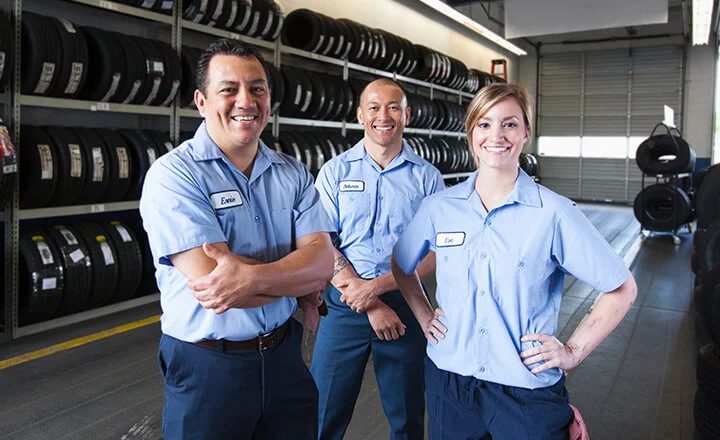Automotive Tools And Equipment: What To Consider When Opening A Car Repair Shop
In this blog post, you’ll find five topics you should carefully think through before acquiring specialty car service tools and equipment for your new-found shop.
Table of Contents
How to Сhoose Machinery and Equipment For an Auto Repair Shop?
How to Find Reliable Automotive Tool Manufacturers?
What Tools and Equipment are Essential for Auto Repair Shops?
Will Your Shop Provide Car Hand Tools For Mechanics?
Buy or Lease Equipment Needed For an Auto Repair Shop?
How to Keep Your Auto Repair Shop Equipment In Good Condition?
Final Thoughts
Congratulations! You’ve decided to go after your mechanic’s dream and become your own boss. Going down this road is exciting, but before you do it at full throttle, look at your budget plan from multiple angles. Pay attention, especially to equipping your shop with specialty tools, as it is a massive part of the costs involved in getting started. As an entrepreneur, you want to maximize your investment, so consider what is essential before buying fantastic new automotive tools & equipment.
How to Сhoose Machinery and Equipment For an Auto Repair Shop?
Adequately selected equipment will allow you to provide quality services for diagnosing, repairing, and maintaining vehicles. However, buying much of everything initially is not recommended because it may not meet market demand. You have to remain reasonable and purchase just enough to handle the workload. Therefore, consider the following aspects thoroughly when working on your auto repair shop plan:
Specialization. What auto shop will you run—a general mechanic or specialty enterprise? For instance, if you decide to go after auto body repairs, your equipment will include paint tools, an air compressor, a slide hammer, a dual-action sander, etc. If you plan to do different things, this collection won’t be among your essential automotive repair tools unless you offer a wide range of services from the beginning.
Future goals. Are you dreaming of building a network, or just want to keep it as a small family business? A limited automotive tool kit you’ll slowly extend with time would be enough for a one-man shop. If you plan to become a niche leader in your area and beyond, schedule regular purchasing and reinvest the money you’ll earn with the first shop in assorted tools for your future locations.
Target audience. What car brands are popular on the market? Are you going to service luxury or high-tech cars? To meet the needs of each type of potential customer, you will need different equipment.
Budget. The cost of garage tools depends on many criteria, mainly the manufacturer, technical characteristics, and service life. For instance, if you’d like to support local businesses, you will probably have to plan another budget size compared to purchasing from international companies.
Must-have digital tools. To run a successful car repair business nowadays, you’ll need software to keep accurate records of everything in your automotive shop, including equipment.
Cloud services like Orderry are the best choice as they don’t require special hardware, installation, or updates and can be accessed from any device. Want to have a look?
How to Find Reliable Automotive Tool Manufacturers?
This is no one-answer question, and hundreds of opinions exist. Just keep in mind these primary selection criteria:
- company’s reputation
- how long it has been in the market
- terms and conditions of delivery
- range of products offered
- warranty and post-warranty service;
- terms of payment
- return and exchange of low-quality products
- after-sales service
- on-site training
- manuals and service directives
- customer feedback
What Tools and Equipment are Essential for Auto Repair Shops?
Among thousands of auto tools, several are the most useful for any automotive repair business. First, you will need diagnostic tools, e.g., a diagnostic scanner, which allows mechanics to identify and diagnose any issues with a vehicle's onboard computer system. Next, acquire high-quality wrenches and sockets for loosening and tightening nuts and bolts. A hydraulic jack and jack stands are necessary for lifting vehicles off the ground safely, while a torque wrench is needed to ensure that bolts are tightened to the correct specifications. Other essential power tools include a battery charger and an air compressor. Among brake tools, a brake bleeder kit is a must. You may also need specialized tools like an engine compression tester or an automotive tire tool. Having these essentials in your auto shop ensures that mechanics can efficiently perform various vehicle repairs and maintenance tasks.

Will Your Shop Provide Car Hand Tools For Mechanics?
It’s common practice in repair shops that mechanics bring their own car fixing tools. Of course, this is a good way for owners to avoid theft and shorten expenses. You can also implement this in your business, but... regarding the growing mechanic shortage in the industry, wouldn’t it be forward-looking to do the opposite?
Buying the necessary vehicle tool kit might be challenging for starting techs, especially when paying off educational loans. So, as an employer, you will be more likely to attract mechanics to work for you when you provide them with the individual tools they need to do repair jobs. Another option is to offer a tool allowance in your benefits package.
Orderry allows auto repair shops to allocate equipment and resources efficiently. Sign up for a free trial today.
Buy or Lease Equipment Needed For an Auto Repair Shop?
Leasing vehicle maintenance tools and equipment is an excellent alternative to buying: it does not require a significant initial investment, and you can get various equipment, thereby greatly expanding your range of services. Among the cons is not the best condition since the equipment has been in use and sometimes long.
From the long-term perspective, acquiring equipment is more reasonable than leasing. In this case, you’ll pay once and won’t worry about losing tools because of missed leasing payments. To save some budget, consider buying used tooling, for example, at auto repair shop equipment auctions.
Buying used equipment: pros and cons
| Pros | Cons |
| Reasonable price | Not always good quality |
| Quick payback | No warranty |
| Already in stock: prompt delivery | Quality technical inspection required |
How to Keep Your Auto Repair Shop Equipment In Good Condition?
First, you must be sure your team is well-trained to operate all the machinery and tools you have in your shop. Make a quick training session obligatory for all new employees, even those with lots of experience, so everyone properly uses your equipment.
Another tip is regularly checking how often a piece of equipment was used to assess its wear and tear and plan preventive maintenance. E.g., in Orderry auto repair shop software, you can keep tabs on all your company’s assets and plan their load in the Scheduler. When analyzing your work orders, you’ll see how often your techs used equipment to complete repairs and schedule timely PM works.
 Resources Tab in Orderry
Resources Tab in Orderry
Final Thoughts
Equipping your car repair shop with the necessary tools and machinery requires good planning and research. To inform your decision-making, look at what services are in demand in the market, analyze your target audience’s needs, and set your business goals. Think about purchasing equipment and keeping it as good as new for as long as possible. For this purpose, Orderry offers asset accounting and inventory management features that will help prolong your equipment service life.



